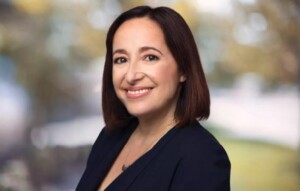Director of the Bill and Melinda Gates Foundation recommends action to go beyond a return to normal
The new coronavirus pandemic may have affected all of humanity, but its impact does not affect the entire population in the same way. The most vulnerable continue to suffer most, in a visible portrait of social inequality. And what the privileged do can impact society as a whole.

Sofia Michelakis, director of the Bill and Melinda Gates Foundation. (Photo: Disclosure)
For Sofia Michelakis, director of the Bill and Melinda Gates Foundation, it is necessary to act today and publicly make a commitment to philanthropy – especially those who have a lot of money. She was present at the 3rd Donate Seminar, an event aimed at the third sector, philanthropists and social entrepreneurs, organized by Instituto Mol and Movimento Bem Maior, to talk about how the donation of the privileged is, potentially, a great legacy for the next generations. The event has Época NEGÓCIOS as a media partner.
Sofia is responsible for The Giving Pledge, a public commitment made by billionaires who agree to donate a large part of their fortunes during their lifetime. The list, which includes 211 wealthy people from 24 countries, includes personalities such as investor Warren Buffett, filmmaker George Lucas and Elon Musk, CEO of Space X. Syrian businessman based in Brazil Elie Horn, former president of the Cyrela group and co-founder of Movimento Bem Maior, is the only Brazilian currently participating in the initiative.
She identifies the three-step path that philanthropists could take in the face of this crisis. The first measure would be to invest in immediate relief from the consequences of the pandemic. “Philanthropy can act in spaces where public authorities cannot reach, centralizing means coordinating donations and mobilizing the delivery of more urgent inputs”, she states.
Investing in reconstruction would be a second step, identifying the needs of NGOs and looking for ways to raise funds that guarantee their full functioning. It is also the time to advocate for the balanced allocation of resources, as is the case with the COVID-19 vaccine. “We need to work to guarantee equal access to treatment, and not just for rich countries,” he says.
Finally, she emphasizes the need to think beyond the pre-pandemic level and work to acquire resilience in systems and organizations – including thinking about the case of a new crisis of this magnitude. “I challenge philanthropists to think about what a return to normal means. Remembering the pre-covid world, looking at 'normal' systems and thinking about who they serve and who they don't, and what to do to make them better,” she says.
Sofia argues that philanthropy should simultaneously look at these three aspects and devise an action strategy. “It’s not just financial resources that matter. You can also donate your talent, your contact networks. Choose a cause that you consider important and start getting involved, look for serious institutions that work with it and get closer.”
For those on the other side of the table, asking for resources, she recommends emphasizing to the potential donor what the problem is and what solution your organization has found, the impact of your actions and presenting stories of beneficiaries. “Most people are motivated by what they see, by a cause they feel responsible for or when they can see the impact their work has,” she says.
Regarding the new generation of young philanthropists, who have taken on and questioned the investments of rich families, she sees with optimism the sense of urgency and the look for new causes. “They don’t want to put Band-Aids on problems, they want to get to the heart of them and solve them,” she says.
Sofia believes that this stance of young leaders is not restricted to the philanthropy debate. “We have the example of Malala Yousafzai, Greta Thunberg, who are teenagers using their voice to motivate others to get involved, it is very inspiring”, she adds.
This text was originally published on the Época Negócios website .







